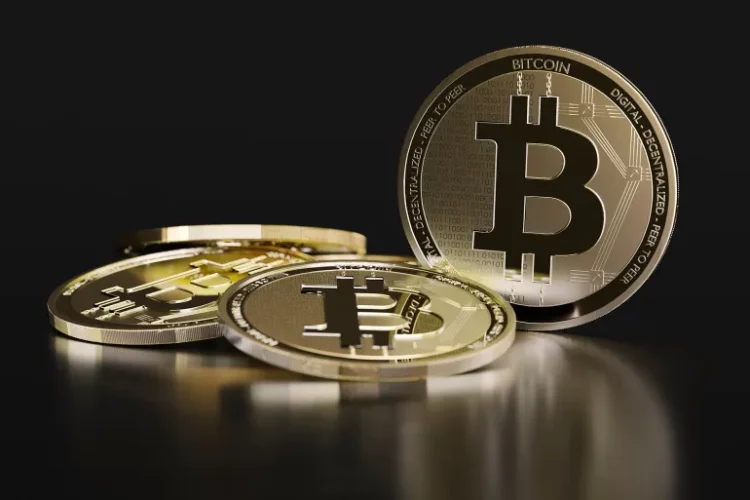As blockchain technology becomes increasingly integrated into the global financial system, its transformative potential is undeniable. From cross-border payments and decentralized finance (DeFi) to tokenized assets and smart contracts, blockchain is reshaping how value is exchanged, stored, and verified. Yet, as with any disruptive technology, its adoption in the highly regulated financial sector brings with it a range of legal challenges. These challenges stem from jurisdictional uncertainty, legacy regulatory frameworks, evolving interpretations of financial laws, and the inherently decentralized nature of blockchain systems.
In this article, we explore the key legal challenges facing blockchain applications in finance and analyze how financial institutions, developers, and regulators can work together to ensure compliance and long-term sustainability.
1. Regulatory Uncertainty and Classification Ambiguities
One of the most pressing legal issues facing blockchain in finance is the lack of uniform definitions and classifications. Financial regulators across different countries vary widely in how they categorize digital assets:
- Is a token a security, a commodity, property, or a payment instrument?
- Do smart contracts constitute legal agreements under existing contract law?
- Are DeFi protocols subject to banking regulations if they perform similar functions?
Inconsistent interpretations can lead to enforcement actions and hinder innovation. For instance, the U.S. SEC has taken an expansive view, treating many tokens as unregistered securities, while other jurisdictions like Switzerland classify some tokens as utility assets.
Compliance Strategy:
To navigate this uncertainty:
- Blockchain projects must seek early legal counsel to determine the likely classification of their product or service.
- Developers can design token models and financial products that align with existing legal frameworks.
- Institutions should monitor evolving guidance from bodies like the SEC, FINMA, ESMA, FATF, and OECD.
2. Know Your Customer (KYC) and Anti-Money Laundering (AML) Requirements
Financial institutions must comply with strict KYC/AML regulations to prevent illicit activities such as money laundering and terrorism financing. Blockchain systems, especially DeFi and peer-to-peer networks, often allow pseudonymous transactions, making it difficult to verify identities.
This creates tension between the privacy-preserving features of blockchain and the transparency demands of regulators.
Compliance Strategy:
To address this challenge:
- Institutions can integrate KYC/AML layers on top of blockchain protocols, using identity verification APIs or decentralized identity (DID) solutions.
- Regulators may require “travel rule” compliance, which mandates that personal information be shared between institutions during fund transfers—already endorsed by the FATF.
- Blockchain projects can implement selective disclosure or zero-knowledge proofs to validate identity without revealing sensitive data.
3. Cross-Border Legal Conflicts and Jurisdictional Challenges
Blockchain-based financial services often operate across borders, but legal systems are territorially bound. A smart contract deployed in one country may have users or effects in others—raising complex questions:
- Which country’s laws apply in the case of fraud, error, or dispute?
- Can a decentralized protocol be held liable in a court of law?
- What happens when financial regulations in two jurisdictions conflict?
These jurisdictional grey areas make it hard for financial institutions to adopt blockchain at scale without risking regulatory noncompliance.
Compliance Strategy:
- Legal teams should assess multi-jurisdictional risk and structure operations accordingly (e.g., through legal entities in crypto-friendly jurisdictions).
- Projects can geo-restrict services or design smart contracts to recognize and enforce local legal standards.
- Institutions should prioritize cross-border legal frameworks (e.g., the EU’s MiCA regulation or bilateral treaties) to guide operations.
4. Data Privacy and GDPR Compliance
Blockchain’s immutability clashes with data protection laws like the General Data Protection Regulation (GDPR), which grants users the right to access, correct, or delete personal data. Once data is recorded on a public blockchain, it cannot be altered or erased—posing legal risk.
Additionally, determining who is the “data controller” on a decentralized network can be ambiguous.
Compliance Strategy:
- Avoid storing personally identifiable information (PII) on-chain; instead, use off-chain storage linked via hashes or encryption.
- Implement zero-knowledge proofs or confidential transaction protocols to process private data in a compliant way.
- Clearly define roles and responsibilities within governance models to identify accountable parties.
5. Smart Contract Enforceability and Legal Recognition
Smart contracts automate financial agreements, but their legal enforceability is not yet universally recognized. Questions arise regarding:
- How courts interpret the code-as-law principle.
- Whether all participants had informed consent.
- Who is liable if the code executes an unintended action.
Traditional financial institutions need legal certainty before relying on smart contracts for critical operations like lending, settlement, or asset custody.
Compliance Strategy:
- Combine smart contracts with off-chain legal agreements that reference code execution terms.
- Use standardized contract templates (e.g., OpenLaw, ISDA digital standards) that bridge legal language and code.
- Ensure code is audited and transparent, with mechanisms for dispute resolution or human override if needed.
6. Custody and Asset Safeguarding Rules
Blockchain enables self-custody of assets, but financial institutions are often legally obligated to follow third-party custodial rules, especially when managing client funds. Furthermore, regulatory regimes like SEC’s custody rule or MiFID II in Europe impose strict requirements on how assets must be safeguarded.
The question of whether a smart contract-based protocol or a multi-signature wallet satisfies these rules remains unsettled.
Compliance Strategy:
- Partner with regulated custodians that provide blockchain-native infrastructure and meet regulatory requirements.
- Ensure that custodial solutions support auditable controls, access recovery, and segregation of client assets.
- Monitor evolving definitions of qualified custodians in digital finance regulation.
7. Consumer Protection and Dispute Resolution
In traditional finance, consumers benefit from deposit insurance, compensation schemes, and clear legal remedies. Blockchain platforms—especially in DeFi—offer no centralized entity or recourse, which creates risk when users lose funds due to bugs, hacks, or scams.
Regulators are increasingly demanding consumer protection mechanisms, including disclosures, dispute processes, and accountability.
Compliance Strategy:
- Implement user agreements that clarify rights and responsibilities.
- Establish dispute resolution systems through decentralized arbitration (e.g., Kleros) or hybrid models.
- Introduce insurance funds or smart contract protections to minimize losses during failures.

8. Taxation and Reporting Obligations
Crypto assets are subject to various tax treatments, including capital gains, income, VAT, or transaction taxes—depending on the jurisdiction and use case. Yet, the anonymity of blockchain and the complexity of transactions (staking, airdrops, forks) complicate tax compliance for both individuals and institutions. Governments are now mandating crypto transaction reporting to track tax obligations.
Compliance Strategy:
- Integrate tax reporting APIs and on-chain accounting tools to help users and institutions meet obligations.
- Track transaction history and valuation using blockchain analytics software.
- Monitor updates like the OECD Crypto-Asset Reporting Framework (CARF) for cross-border tax transparency.
Conclusion: Toward a Legally Compliant Blockchain Future in Finance
The integration of blockchain into the financial industry is not merely a technological shift—it is also a legal evolution. Financial institutions, DeFi developers, regulators, and legal experts must work together to shape a future in which blockchain-based finance is safe, compliant, and scalable.
Achieving compliance requires more than passive adherence to rules; it calls for proactive design choices, transparent governance, modular legal infrastructure, and cross-border collaboration. By understanding and addressing the key legal challenges outlined above, blockchain can fulfill its promise to transform finance—not in defiance of regulation, but in partnership with it.













































